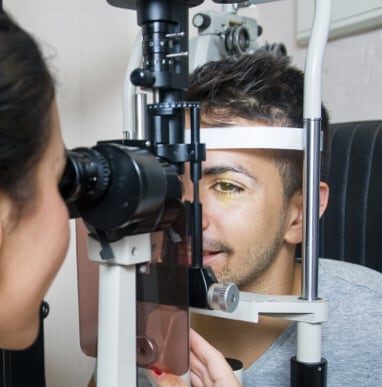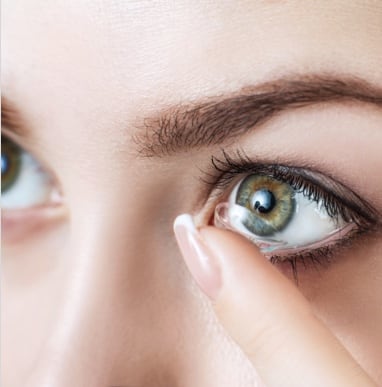
Most of the time, when we hear the word “blind,” we think that means total blindness, but it’s not always that simple.
There is a wide range of visual impairment beyond what glasses can correct, and it’s important for sighted people to understand what that range is so that we will be better equipped to provide the right kind of assistance. It’s also important to realize that being visually impaired doesn’t mean losing the ability to lead a full, exciting life!
The Many Forms Of Visual Impairment
A variety of eye diseases, genetic disorders, and birth defects, as well as old age and injuries, can interfere with healthy vision. Sometimes the vision loss is too severe to be corrected with lenses and not eligible to be repaired with modern procedures.
These visual impairments don’t all work the same. Some, like macular degeneration, erode the central vision without affecting peripheral vision. It is also possible to have a narrowed field of vision, in which central vision is fine but the peripheral vision is limited. Other visual impairments include photophobia (inability to tolerate light), diplopia (double vision), visual distortion, and difficulty with visual perception.
Low Vision And Blindness
If someone has 20/70 visual acuity (meaning that they can only see something 20 feet away as well as something a person with normal vision can see from 70 feet away) or worse in their best eye even with corrective lenses, they have “low vision.” If they have 20/200 visual acuity in their best eye or worse, they are considered legally blind.
Even total blindness isn’t the same for everyone. Some people are blind from birth. Others lose their vision over time, sometimes quickly, sometimes slowly. Some blind people can tell the difference between light and darkness, while others can’t perceive any visual information at all.
What Can We Do To Help?
Every visually impaired person’s situation is unique, but what they all have in common is that they are still people who deserve to be treated with respect. Talk to them like you would anyone else, and don’t just jump in and try to be a knight in shining armor. Politely greet them, introduce yourself, and ask if they need help. If they want help with mobility, ask them where they want you, match their walking speed, and describe upcoming obstacles like curbs, stairs, and sudden changes in the angle of the ground.
Be very specific when describing objects or places/placements. If you place something in front of the person you are helping, let them know where you placed it so they don’t lose track of it. If you’re in their home, you might offer to help tidy up, but make sure you place everything exactly where they want it or they may not be able to find it again.
Finally, if you see a visually impaired person with a guide dog, do not distract the dog while it’s working! As much as we all love petting friendly dogs, these highly trained canines have an important job to do.
Take Good Care Of Your Own Vision
Technology and medicine are advancing at an astounding rate, and the day when all forms of blindness and vision loss become curable might not be too many years in the future. Until then, we should all strive to help our vision-impaired family members, friends, and neighbors, and we should do everything we can to keep our own vision healthy.












